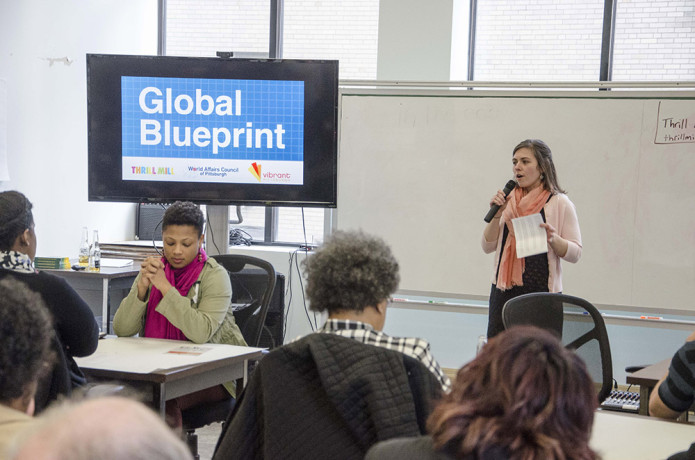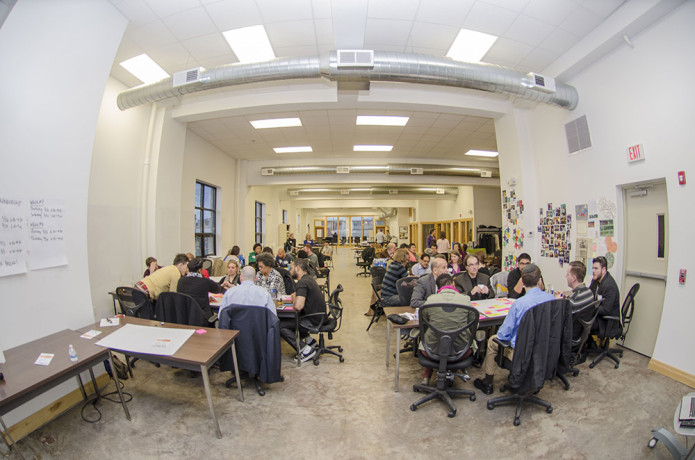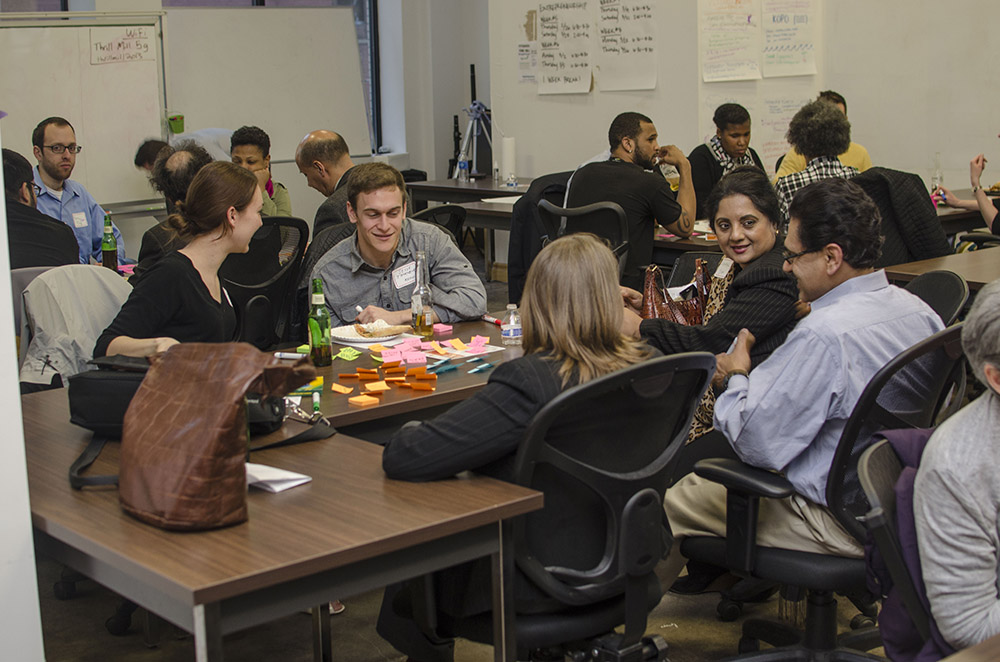What is global fluency, and how do you achieve it? That was the question posed by the World Affairs Council of Pittsburgh in its Global Blueprint project.
With the help of a Community of Practice grant from The Sprout Fund, they partnered with Thrill Mill and Vibrant Pittsburgh to bring together a cross-section of community leaders and regular citizens from around the Pittsburgh region to engage in a discussion about global fluency, and then to come up with ideas about how to improve it.
Participants agreed that global fluency enables people to better understand the world they live in, creating educational, career and economic development opportunities they might not otherwise enjoy. Their challenge was to help chart a course to get there.
“People that attended were from such a range of different backgrounds and experiences,” says the World Affairs Council’s Emily Markham. “That made for really energizing and enlightening conversation that created ideas and thoughts and concepts and strategies that were well-balanced and representative of the Pittsburgh community as a whole.”
Over the course of three “think-do” workshops in early 2015, Global Blueprint participants discussed Pittsburgh’s current global fluency, which has been defined by The Brookings Institution in a 10-point list of characteristics, including leadership with a worldview, culture of knowledge and innovation, international connectivity, and others.

“PEOPLE THAT ATTENDED WERE FROM SUCH A RANGE OF DIFFERENT BACKGROUNDS AND EXPERIENCES.”
In these facilitated sessions, participants brainstormed about Pittsburgh’s strengths and weaknesses, addressing questions such as “How can we define Pittsburgh’s identity?” and “How do we reach Pittsburgh’s global future?”
They wrapped up by narrowing down the list to four focus areas:
- Leveraging Pittsburgh’s world-class education by offering internships to international students, and better promote the global research taking place at area institutions;
- Engaging more local people by connecting communities with similarly-situated neighborhoods abroad;
- Reinvesting in transportation;
- Using community festivals to better market, both nationally and internationally, the things that make Pittsburgh unique.
In the hopes of increasing global engagement in the region, those findings will be packaged in a compilation of recommendations to be used as a resource when continuing these conversations with interested stakeholders, community leaders, and policy makers, Markham says.
For the World Affairs Council of Pittsburgh, which was founded in 1931, the Global Blueprint project is something of a departure from its usual programming, which consists of a wide range of speaker programs and educational activities, Markham says.
“We weren’t sure how it would turn out,” she says. “But the response we received and the people who came to every single workshop and were engaged and were excited and continue to contribute to this day just makes us all excited for the future.”
Working with The Global Switchboard and helping build the region’s community of practice around global engagement seemed like a natural fit, even a necessity, Markham says.
“When I think of global engagement I think of awareness of global issues, of being an active participant in anything global and just being naturally curious about what’s happening in the world,” she says. “I see the Global Blueprint as a natural add-on to that.”



